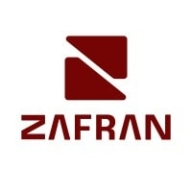


Tenable Vulnerability Management and Microsoft Defender Vulnerability Management compete in vulnerability management. Microsoft Defender has the upper hand with seamless integration within the Microsoft ecosystem, while Tenable is favored for comprehensive scanning capabilities and broader platform support.
Features: Tenable Vulnerability Management has robust scanning functionalities, support for a wide array of platforms, and diverse policy frameworks. Microsoft Defender leverages strong ties to Azure Active Directory and Intune for enhanced threat detection, integrates seamlessly within Microsoft ecosystems, and offers end-to-end security solutions.
Room for Improvement: Tenable could improve by enhancing integration options for Microsoft-specific environments, increasing user interface intuitiveness, and expanding reporting capabilities. Microsoft Defender may enhance platform support for non-Microsoft environments, provide more flexibility in policy frameworks, and streamline cross-platform threat analysis.
Ease of Deployment and Customer Service: Tenable offers straightforward deployment with flexible options for diverse IT environments and reliable support. Microsoft Defender capitalizes on existing infrastructure, ensuring smooth deployment for Microsoft-centric organizations, supported by integrated security services.
Pricing and ROI: Tenable's cost structure has clear licensing options, providing substantial ROI through effective risk management across platforms. Microsoft Defender’s pricing aligns well for businesses in the Microsoft ecosystem, offering competitive ROI through consolidated billing and package bundling with other Microsoft services.



Zafran Security integrates with existing security tools to identify and mitigate vulnerabilities effectively, proving that most critical vulnerabilities are not exploitable, optimizing threat management.
Zafran Security introduces an innovative operating model for managing security threats and vulnerabilities. By leveraging the threat exposure management platform, it pinpoints and prioritizes exploitable vulnerabilities, reducing risk through immediate remediation. This platform enhances your hybrid cloud security by normalizing vulnerability signals and integrating specific IT context data, such as CVE runtime presence and internet asset reachability, into its analysis. No longer reliant on patch windows, Zafran Security allows you to manage risks actively.
What are the key features of Zafran Security?
What benefits can users expect from Zafran Security?
In industries where security is paramount, such as finance and healthcare, Zafran Security provides invaluable protection by ensuring that only exploitable vulnerabilities are addressed. It allows entities to maintain robust security measures while allocating resources efficiently, fitting seamlessly into existing security strategies.
Microsoft Defender Vulnerability Management enables organizations to identify vulnerabilities, manage patches, and fortify threat detection. It offers endpoint assessments, cloud incident management, and dynamic security through Microsoft's Security Scorecard integration.
Organizations leverage Microsoft Defender Vulnerability Management for advanced threat detection and response. It provides robust tools for vulnerability assessment and cloud incident management, integrated with Microsoft's Security Scorecard to enhance dynamic security profiling. Key features include automatic patch deployment, security configuration management, and seamless integration with Microsoft platforms, benefiting both on-prem and cloud environments. Organizations can track vulnerabilities with severity-based reports, helping manage outdated software and minimizing threat exposure.
What are the key features of Microsoft Defender Vulnerability Management?In healthcare, Microsoft Defender Vulnerability Management helps manage compliance with health regulations, while in finance, it aids in securing sensitive data from cyber threats. Manufacturing sectors benefit from its patch management, keeping operational technology systems less vulnerable to disruptions.
Managed in the cloud and powered by Tenable Nessus, Tenable Vulnerability Management (formerly Tenable.io) provides the industry's most comprehensive vulnerability coverage with real-time continuous assessment of your organization. Built-in prioritization, threat intelligence and real-time insight help you understand your exposures and proactively prioritize remediations.
We monitor all Vulnerability Management reviews to prevent fraudulent reviews and keep review quality high. We do not post reviews by company employees or direct competitors. We validate each review for authenticity via cross-reference with LinkedIn, and personal follow-up with the reviewer when necessary.